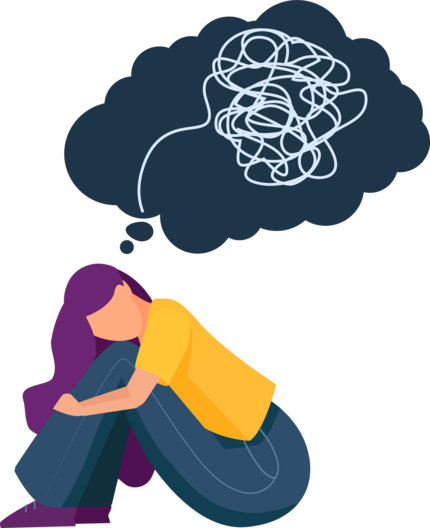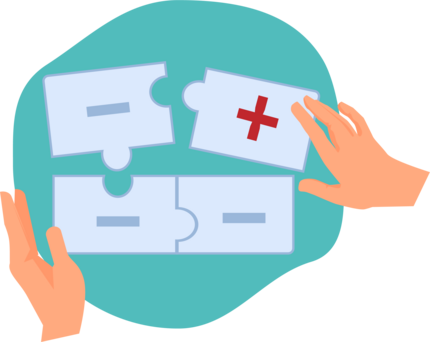
Let's Break The Stigma
One in five US adults are experiencing a mental illness. That's more than 50 million people. For some, living with a mental illness can limit their ability to carry out daily activities. For others, it is a manageable condition that they cope with. You may not even realize someone you spend time with at work or in your community has a mental illness.
Fewer than 50% of those reporting a mental illness received treatment. While accessing mental health care can be a challenge, societal and cultural stigma around mental illness is often also a barrier. As we mark Mental Health Awareness Month, Lehigh HR wants to help break the stigma. If you or someone you love is living with mental illness, you are not alone, and your experiences are valid.
Are you looking for a way to take intentional steps to focus on your mental health this month? Explore our 31-Day activity calendar especially for Mental Health Awareness Month. The calendar features links to resources, articles, videos, and webinars. Each day concludes with a journal prompt to help foster some additional gratitude and reflection. Click on each day's event to learn more.
Let's Look At The Data

According to the National Alliance on Mental Illness:
- 1 in 5 US adults experienced mental illness in 2021
- 47.2% received treatment (a slight improvement over 2020)
- 1 in 20 US adults experienced serious mental illness in 2021
- 65.4% received treatment (a slight improvement over 2020)
- 16.5% of US youth aged 6-17 experienced a mental health disorder in 2016
- 50.6% received treatment
- 7.6% of US adults experienced a co-occurring substance use disorder and mental illness in 2021
Let's Get Specific

The following shows annual prevalence among US adults in 2021, by condition:
- Major Depressive Episode: 8.3% (21 million people)
- Schizophrenia: <1% (estimated 1.5 million people)
- Bipolar Disorder: 2.8% (estimated 7 million people)
- Anxiety Disorders: 19.1% (estimated 48 million people)
- Post Traumatic Stress Disorder: 3.6% (estimated 9 million people)
- Obsessive Compulsive Disorder: 1.2% (estimated 3 million people)
- Borderline Personality Disorder: 1.4% (estimated 3.5 million people)
In addition to affecting relationships, careers, and overall well-being, untreated mental illness can have a significant impact on your physical health. For example:
- People with depression have a 40% higher risk of developing cardiovascular and metabolic diseases than the general population.
- People with serious mental illness are nearly twice as likely to develop these conditions.
Let's Get Help

With all of these statistics, you’re probably wondering, “Okay, well, what next? What do I do if I believe I am struggling with mental illness, or have a loved one who is?” The University has benefits available to you and your eligible dependents. We'll take a look at these resources and more.
But first: If you or someone you know experiencing an emergency, call the National Suicide Prevention Lifeline at 800-273-TALK (8255) or call 911 immediately.
You can also contact the University’s Employee Assistance Program (EAP), Health Advocate, 24/7 by calling 866-2728 or by visiting members.healthadvocate.com.

Behavioral Health Benefits for Lehigh Employees
Behavioral health includes mental health, psychiatric, marriage/family counseling and treatment for addiction.

Employee Assistance Program (EAP)
Health Advocate can provide short term counseling resources and more.

Additional Resources
Services like Alight's My Medical Ally also offer assistance and resources.

BE WELL
Lehigh's employee wellness program offers an abundance of activities to improve overall wellness, including mental health.
